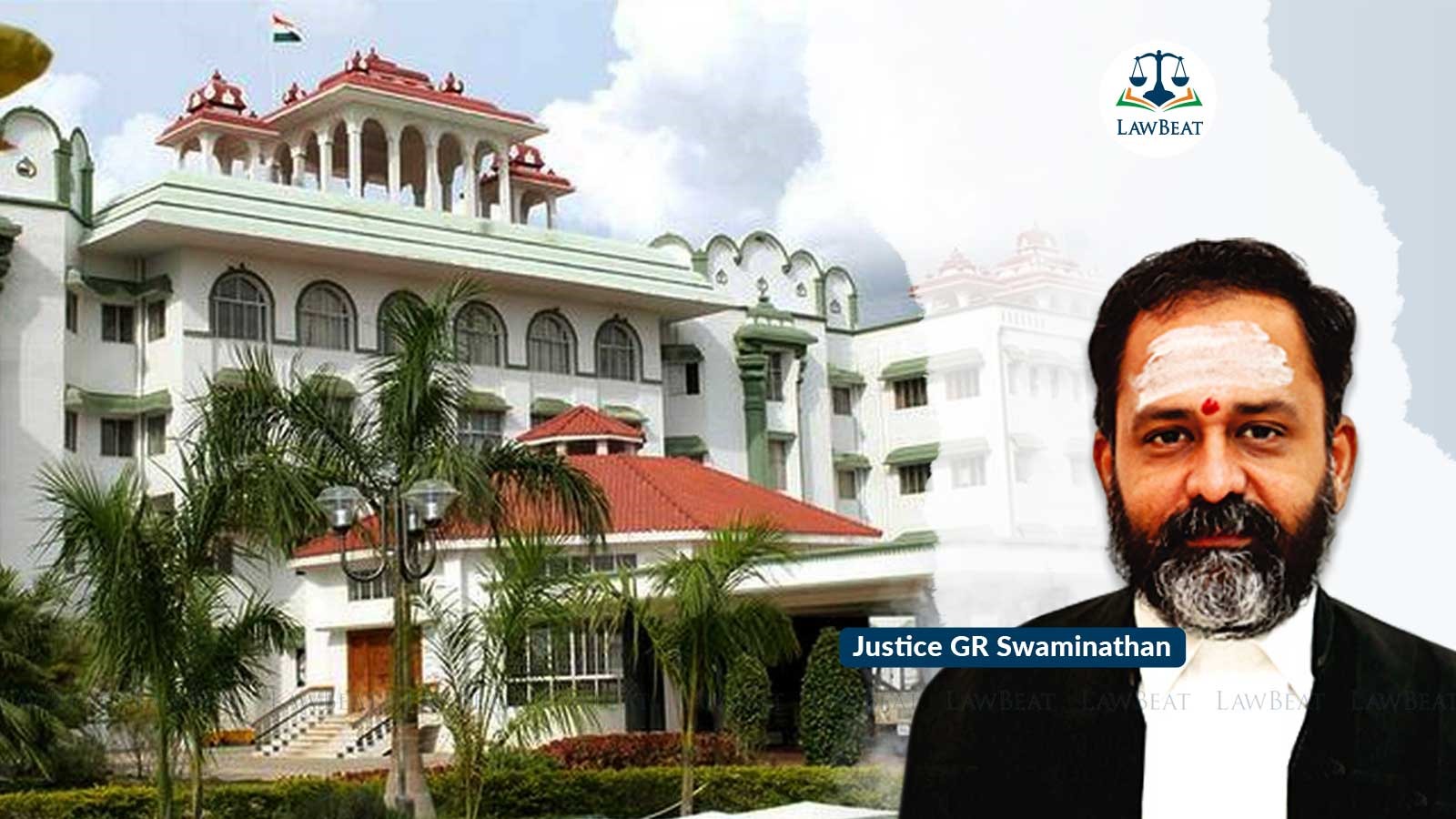India is Secular, State Should Treat All Religions Alike: Madras HC

Court noted that within the scope of Section 22-A of the Registration Act, only the properties endowed under Hindu and Islamic Laws are given protection and it does not include the church properties
The Madras High Court at Madurai Bench recently emphasized India's secular nature and said that the State should approach all religions alike.
The bench of Justice GR Swaminathan highlighted that under Section 22-A of the Registration Act, 1908 which provides for 'refusal to register certain documents', Church properties do not receive the same protection as Wakf properties or properties belonging to religious institutions governed by the Tamil Nadu Hindu Religious and Charitable Endowments Act, 1959.
"I have personally come across quite a few cases wherein church properties have been illegally and unlawfully alienated", Justice Swaminathan noted.
He said that when the Registration Act contains a provision to protect the properties endowed under Hindu and Islamic Laws, it is surprising that the church properties are not covered.
"The logical reason that one can give is that in the case of Hindu religious endowments and Wakf properties, there are specific legislations, in the case of church properties, a similar law appears to be absent," he opined.
He, therefore, asserted that "probably the time has come to include the church properties also within the scope of Section 22-A of the Act".
These observations were made in a writ petition filed by one Shalin, who contested the Sub Registrar of Tiruppathur, Sivagangai District's refusal to register the property he had purchased.
The Sub Registrar submitted before the court that, according to a 2017 High Court ruling, properties endowed to the Tamil Evangelical Lutheran Church (TELC) cannot be registered without obtaining permission from the High Court. The Special Government Pleader urged the court that no interference was warranted and therefore, the court should dismiss the petition.
However, the single judge bench pointed out that the 2017 High Court decision was merely an interim order. The court remarked that "it is well settled that an interim order cannot extend beyond the conclusion of the main writ petition". As of now, there is no standing restraint order from the High Court regarding TELC properties in general, court underscored.
The single judge bench said that in the case at hand, the issue to be considered was whether Section 22(A)(1) of the Registration Act, 1908 could be invoked to sustain the challenged order.
It observed that Section 22-A specifically applies only to immovable properties belonging to, or endowed for, any religious institution covered under the Tamil Nadu Hindu Religious and Charitable Endowments Act, 1959, and to Wakf properties under the supervision of the Wakf Board.
Furthermore, court noted that the property in question was purchased by the petitioner from one Vijaya, who obtained it through a settlement deed dated March 17, 2017. This deed was executed by one M. Premkumar Prithviraj, who had purchased the property from TELC on June 19, 2015. Both the sale deed to Premkumar Prithviraj and the settlement deed to Vijaya were registered and the revenue record had been updated, and the patta in Vijaya's name was included in the typed documents.
"In these circumstances, the impugned order has to be set aside," the bench held.
It allowed the petitioner to re-present the document before the Sub Registra. "The second respondent shall entertain the same and register it and release it," court ordered.
Case Title: Shalin v. The District Registrar, Karaikudi, Sivagangai District and Another
